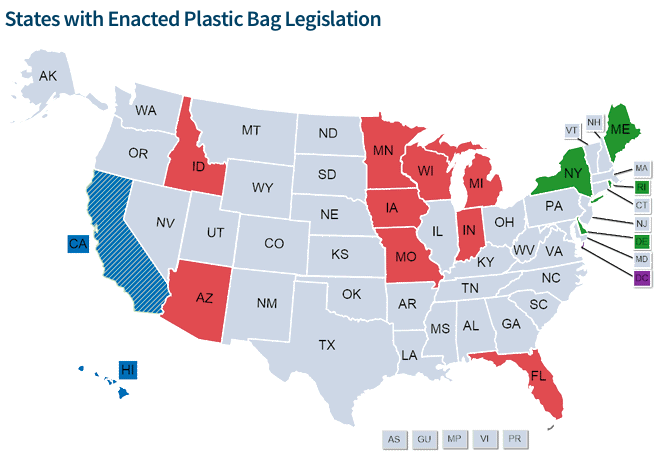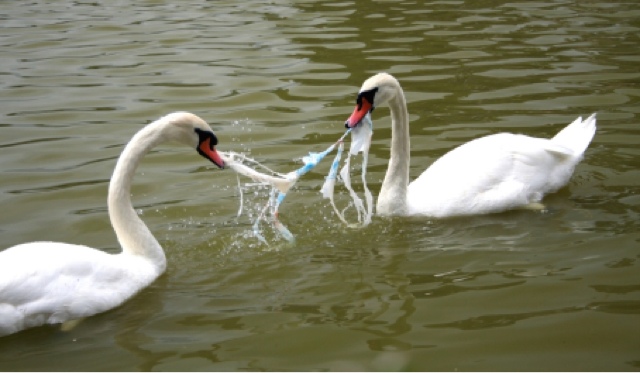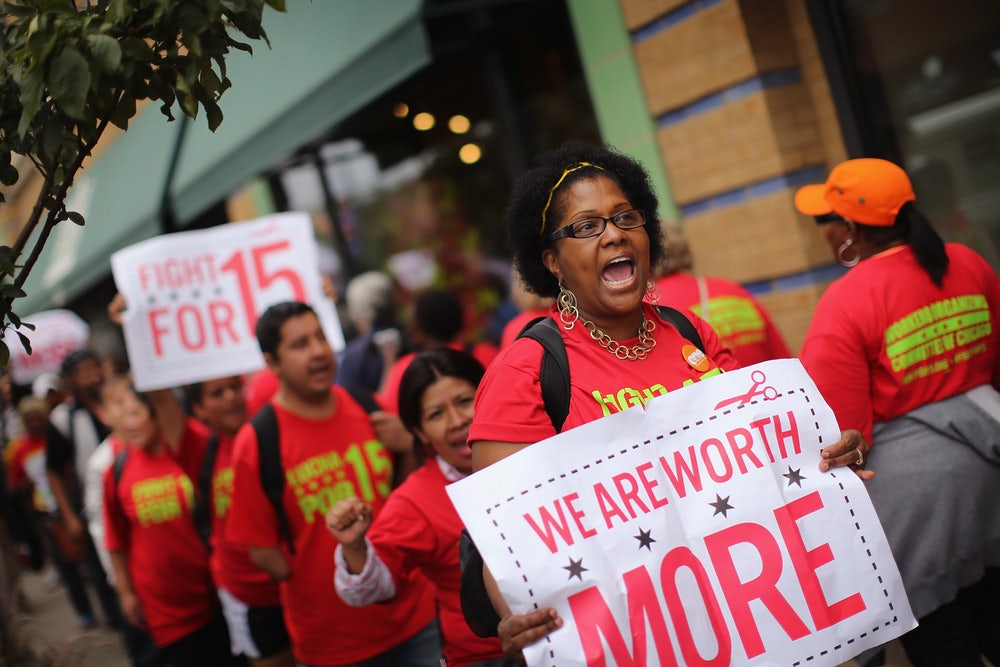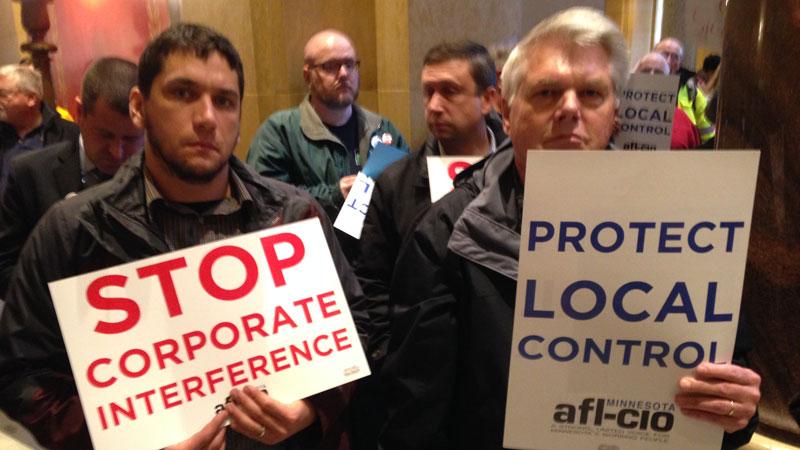In 2016, California became the first state in the nation to ban single-use plastic bags when voters passed Proposition 67. In 2017, Michigan became the seventh state in the nation to ban single-use plastic bag bans.
Michigan joins a clique of states with Republican-controlled legislatures that have moved swiftly to stop the spread of grassroots plastic bag fees/bans by communities concerned about the consequences of plastic pollution. Republican officials are not shy about their desire to remove power from local communities. (Follow link for video.)
Liberal cities need to be “reined in” -Iowa House Speaker Linda Upmeyer
“When we talk about local control, we mean state control.” -Ohio State Senator Keith Fabor
Missouri, Idaho, Arizona, Wisconsin, Indiana and Florida are the other states that have adopted the preemption measures pushed by bag manufacturers and the plastic industry, with legislative model language often provided by ALEC.


Although such efforts are certainly not good for the environment in landlocked states, they're particularly distressing in states adjacent to open waterways, such as Florida and Michigan. Very few of the 100 billion single-use plastic bags used in the United States each year are recycled. The US EPA estimates less than 5% of plastic bags are recycled.
 That leaves the burden of plastic pollution on municipalities. Cities must deal with the blight of plastic pollution, clogged sewers, litter removal, landscape and farming equipment jammed by plastic bags/film, death to wildlife, and pollution prevention education.
That leaves the burden of plastic pollution on municipalities. Cities must deal with the blight of plastic pollution, clogged sewers, litter removal, landscape and farming equipment jammed by plastic bags/film, death to wildlife, and pollution prevention education.
In October 2017, Ohio Senator Coley introduced SB210, which would preempt local efforts to pass ordinances that would place a fee or tax on “auxiliary containers” (bags, bottles, cups, straws, takeout containers, etc.). At the same time, Cuyahoga County is proposing a ten cent fee on carryout bags.
Why would these seven states, eight counting Ohio, take a stand against localism to protect one industry that may not even have factories in their state? They are not concerned about the environment or democracy. These are partisan political moves by state lawmakers to stop communities from enacting policies Republicans view as hostile to business. When Ohio adopted preemptive legislation in 2016, for example, it also banned Ohio cities from adopting living wage ordinances. Both are typically liberal policies that conservative politicians find objectionable.

Plastic bags and minimum wage are a small part of the bigger picture. The number of preemption laws has skyrocketed since the 2011 session:
- 25 states now preempt local minimum wage laws, most of them since 2011
- 18 states preempt local paid sick days laws, 16 of them since 2011
- 3 states ban local anti-LGBTQ discrimination ordinances
- 7 states prohibit local fracking bans
- 38 states limit local authority to regulate ride-sharing
- 9 states ban local plastic bag bans
- 17 states preempt localities from establishing municipal broadband service
The intent of preemption laws is to halt the momentum of local bans before they grow into a statewide movement. Preemptive legislation is far-reaching and punitive bills that overturn local elections, ban local regulation of business (blanket preemption), punish cities by cutting state funds, and threaten local officials with steep fines and criminal charges.

Hopefully, citizens will see through the motives of their lawmakers and fight successfully for the right to decide whether to put fees on bags or set minimum wage in their own communities. If you are interested in being apart of coalition that is against Ohio waste and for local democracy, please contact Elissa Yoder Mann at: elissa.yoder@sierraclub.org